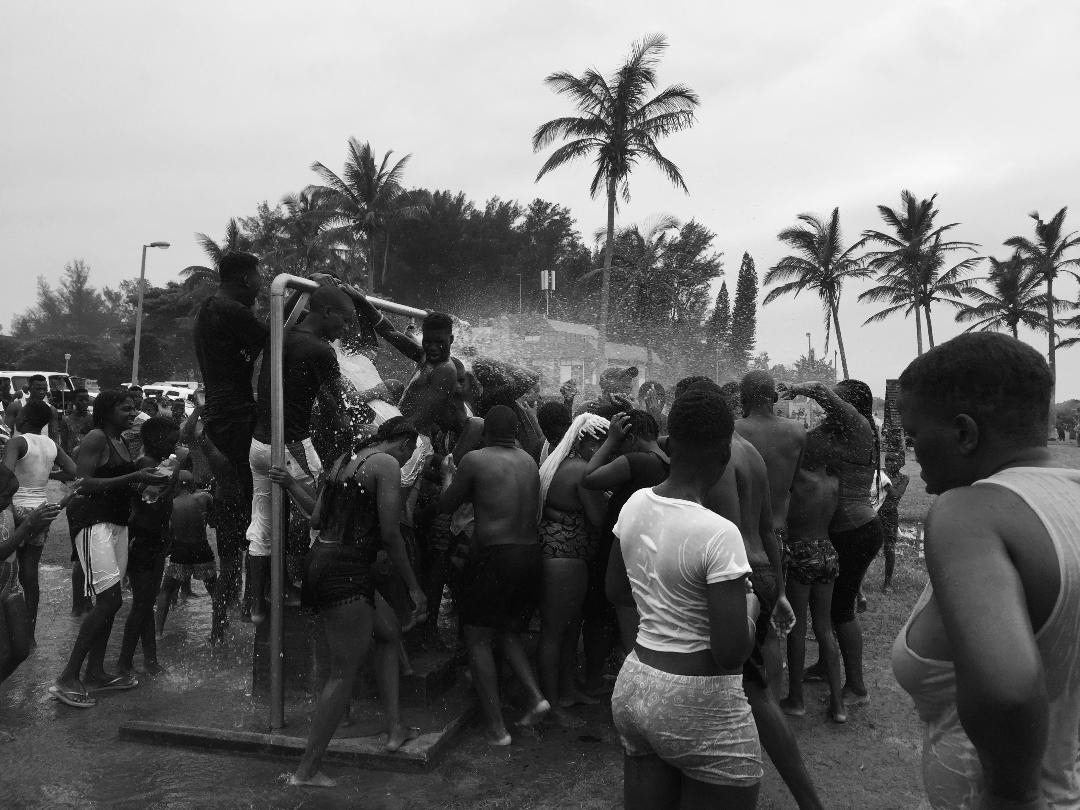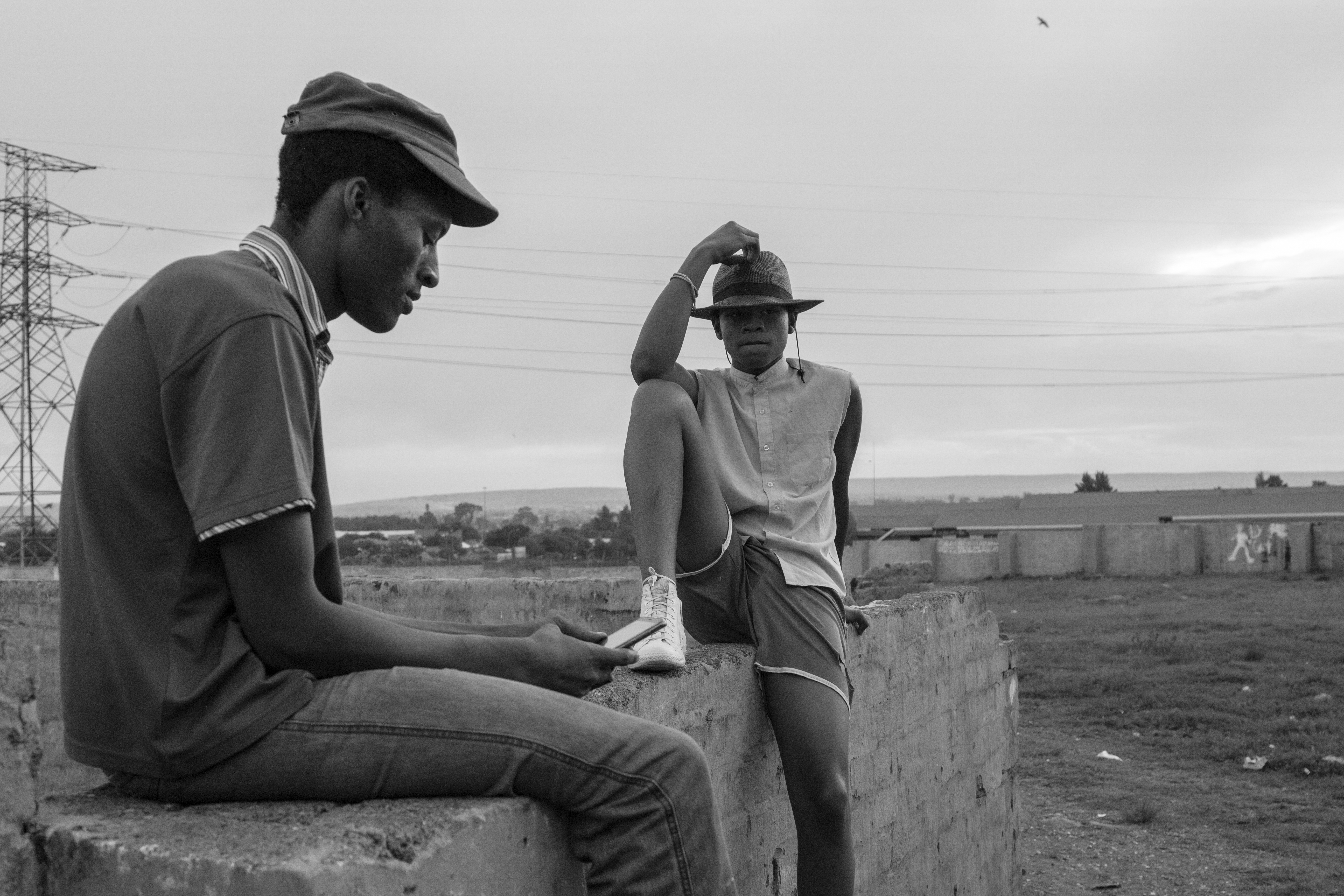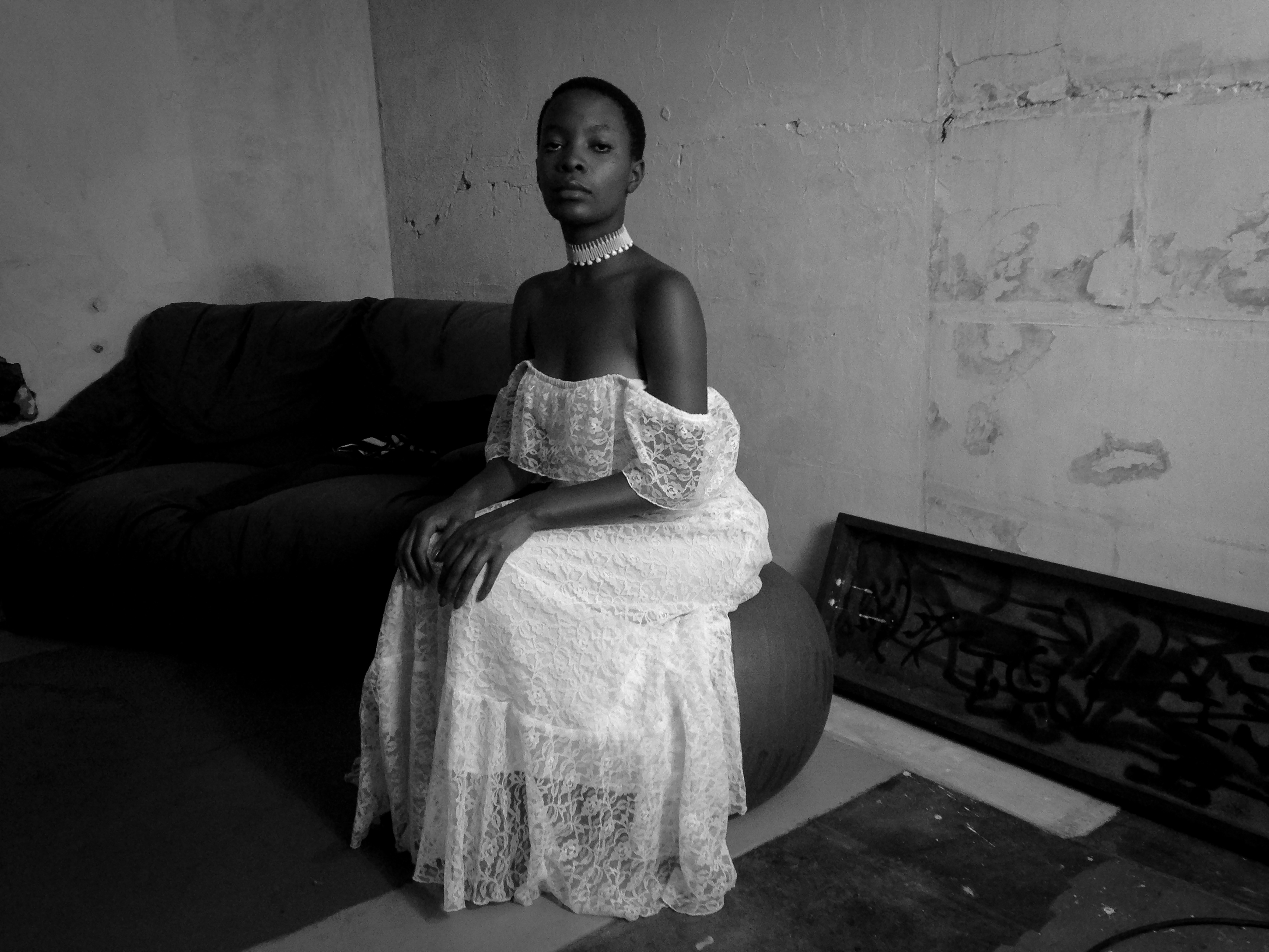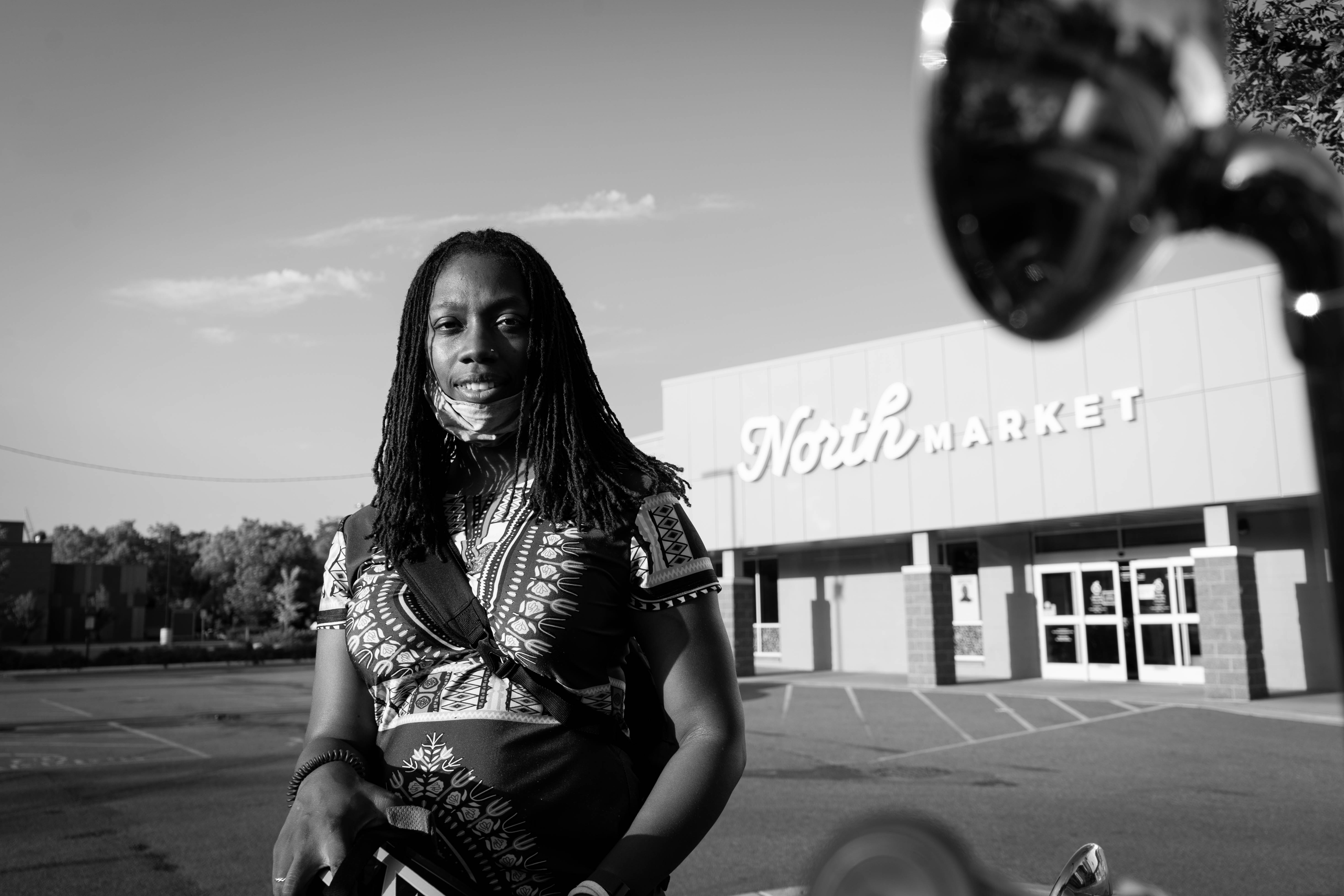PHS

PHS: What has drawn you to photography?
N: What has drawn me to photography, apart from it being a creative outlet for me - it has allowed me to learn and connect with the world through stories. Be it the challenges of the LGBTQI+ community, the impact of religion (Christianity) on black people, or simply the aesthetics and politics of black hair.


PHS: What are the topics you are dissecting within your work?
N: My work explores themes of movement, identity and sexuality.
PHS: How would you describe your work in three words?
N: layered, intuitive & raw
PHS: You are working in the realms of street photography and studio photography. In which style do you feel most comfortable?
N: Street is definitely my first love, I love spontaneity, paying attention to all that is around me. The pleasure of looking and finding in a fleeting moment something that captures all my senses. Be it a hand gesture or the way someone is walking or their outfit.
PHS: How do you approach your work?
N: My street photography is about responding to what is in front of me, it is fast and intuitive. For other projects, the process starts with an idea, focusing on the story I want to tell. Having been working with Michelle of Through the Lens, one starts thinking about elements that make up an image. - the visual language, how elements come together to tell a story, through my point of view. It is a slow and long process.
PHS: In your photography we can notice a tendency to Black and White photography. What is your editing process in your work?
N: I find B&W visually striking, less distracting, yet it also depends on the subject matter. The editing process means taking time to look at what I have captured, what I was interested in when I captured a particular moment, and reflect and see if my ideas, the story I want to tell, is translated visually. I really like a bit of rawness, an imperfection in my images, as I feel it is reflective of the world we live in. Capturing everything in-camera helps keep the editing of my images to a minimum. However, I use tools like Lightroom, VSCO, and Snapseed.


PHS: What is your source of inspiration?
N: I'm inspired by stories from the past and the present, life, and the world. The support of my family and friends, when I’m going crazy and I am not sure about what I’m doing or what to write. My twin, Noncedo Gxekwa, a photographer herself, is a big influence. Additionally, I am inspired by Buyaphi Mdledle from the Buyaphi University in Soweto, who teaches photography to young kids and Andy Mkosi, who is a dynamic creative.
PHS: What are your hopes for the future in photography?
N: I would love for more women who look like me to pick up their cameras. I only started taking photography seriously in my late 20’s. Often when it comes to opportunities they are aimed at young people and I just want to remind people that it's never too late to start.
PHS: How would you describe success within your practice?
N: Success to me is taking an image of someone and they recognise themselves in the image and fall in love with themselves or receiving an IG message from a stranger who is inspired by my work that they’ve decided to pursue photography. However, on a bigger scheme of things, success will be when I can use my photography for change in my community.

PHS: What are you working on at the moment? Is there a new projection that you are working on?
N: Honestly, I’ve found creating during the pandemic really challenging. As someone who shoots on the street concerns around safety, health or otherwise causes a lot of anxiety. Being indoors has forced me to sit down and go through my hard drive and look at my work. This has inspired a project where I am choosing images and asking different writers to respond to. All I can say is watch the space, exciting things on the horizon yet, for now, some of my work is on the show with THKgallery.com
PHS: How do you perceive the current state of the South African Photography Industry?
N: In terms of South Africa people are doing exciting work, a lot of experimentation, the community is continually growing. Publications like African Lens, which is black-owned and celebrates work from across the continent. However, photography still remains a white, heteronormative elitist space.
PHS: What do you think is needed for the African Photography Industry to thrive?
N: I think the support needed, especially by black female photographers, are spaces to exhibit, space to work from and share ideas, develop the skills required to make a living from your work. Equipment is a big part too. South Africa is interesting in that we have Nikon, Canon and FujiFilm and none of these brands has black female brand ambassadors. There is a huge disjuncture between the celebration of our work as black female photographers and paying us what we are worth.


PHS and Nonzuzo Gxekw
Want to become a writer for PHS or submit work for us to publish ? Send us an E-Mail to contributions@photohousesouth.com
We are always looking for texts about photography, art, current news and more.
Nonzuzo Gxekw


